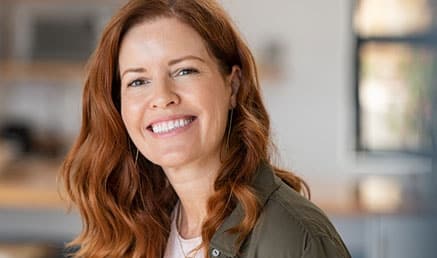
“It’s our polite nudge in the ribs to help you and your team stay organised and on task.”
This week’s subject is: Professional collaboration.
Element 4.2.1: Management, educators and staff work with mutual respect and collaboratively, and challenge and learn from each other, recognising each other’s strengths and skills.
How do your collaborative practices, guided by the service philosophy, code of conduct and the ECA Code of Ethics (2016), ensure that diverse perspectives and skills are respected and integrated to enhance outcomes for children and what evidence is maintained to support this?
What strategies can be implemented to strengthen your service’s culture of professional collaboration and continuous improvement, ensuring all staff, children, and families contribute to shared goals and improved quality practices?
Consider what quality practices your service implements to create a collaborative environment where educators, management, children, and families work together towards shared goals, continual growth, development and improvement. Drawing on the service Philosophy, Code of Conduct and the ECA Code of Ethics (2016) ensures that interactions are respectful, reciprocal, inclusive, and focused on continuous improvement, ultimately enhancing outcomes for children:
-
- Foster open communication and professional enquiry by providing a variety of opportunities for educators to engage in regular, transparent discussions to share ideas, resources and feedback as well as review practices, in both formal and informal ways, embedding a culture of professional collaboration and enquiry.
- Create an inclusive environment where all staff members’ unique skills, experiences, expertise and backgrounds are recognised, utilised, respected and celebrated. The service Philosophy, Code of Conduct and the ECA Code of Ethics should guide interactions to ensure equity and diversity are celebrated, fostering a culture where educators feel empowered to contribute to decision-making and experience a sense of belonging.
- Establish and implement strategies for offering and receiving constructive feedback that aligns with the ECA Code of Ethics (2016), emphasising professionalism and mutual respect.
- Ensure educational leaders, nominated supervisors and other service leaders demonstrate collaborative leadership by actively participating in team discussions and modelling critical reflection to foster continuous improvement, professional development and a culture of professional inquiry.
- Foster a culture of critical reflection by involving educators, children, and families in a regular review of service practices, such as program quality, routines and environment design. Use the approved learning frameworks to guide discussions, ensuring reflections are linked to the goals and values outlined in your service philosophy and commitment to child wellbeing, development and equity. Identify quality improvement planning goals and add these to your service QIP.
- Provide a range of opportunities for educators to access professional learning on topics that challenge and extends educators’ thinking, including workshops, in-house training, webinars and mentoring programs. Use the information gathered from individual performance reviews and team reflections to determine the individual and collective professional development needs of the team to support continual improvement. Foster collaborative leaning by ensuring educators share their professional learning at team meetings or internal training sessions.
- Regularly promote and celebrate educator’s individual and collective achievements and successes through an awards system or similar. Share these achievements across the service and with families, fostering a culture of recognition, appreciation, professional collaboration and motivation, strengthening team morale and encouraging continuous improvement.
- Provide opportunities for educators to work together on specific projects, working towards shared goals, as well as opportunities to work with more experienced educators, supporting collaborative learning.
- Service leaders should prioritise facilitating regular, collaborative reviews of the service philosophy to ensure it remains a living document that guides everyday practice. Schedule dedicated sessions, at least annually or during significant service changes, to critically reflect on how the philosophy’s principles and values, such as inclusion, respect, and child-centeredness, are embedded in daily interactions, practices, program planning, and decision-making. Ensure these reflections are documented as evidence to support professionalism and reflective practice.
By embedding and documenting these practices, services will foster an ongoing culture of professional collaboration, expanding professional knowledge and practice, elevating service standards, and improving outcomes for educators, children, families, and all stakeholders.
Resources:
Guide to the NQF- Standard 4.2: Professionalism
Developing a Culture of Learning Through Reflective Practice
Belonging, Being and Becoming for Educators
Reviewing your Service Philosophy
We Hear You: Developing a Professional Learning Community, Collaboration and Commitment: Building a Culture of Professional Learning
Uncovering the layers of reflective practice
Within System7 go to Quality Area 4/ Modules 4, 5, 6 & 7 to submit self-assessment notes and if required, open a QIP issue if you identify any areas of improvement.
The Childcare Centre Desktop has a range of resources to assist services with documenting and supporting professional collaboration. These include Staff Meeting Guide, templates for meeting agendas, meeting minutes critical reflection and performance review, Professional Development Policy, Performance Review Procedure, Code of Conduct Policy and much more.
Resources, NQS Element, Regulation and System7 links:
Childcare Centre Desktop – Childcare Centre Desktop
National Quality Standard – QA 4/ 4.2.1- Professional collaboration
National Regulations – 155, 168, 169
System7 Module – QA 4/ Modules 4, 5, 6 & 7
If you have any questions, send us a note via the Contact page here!




